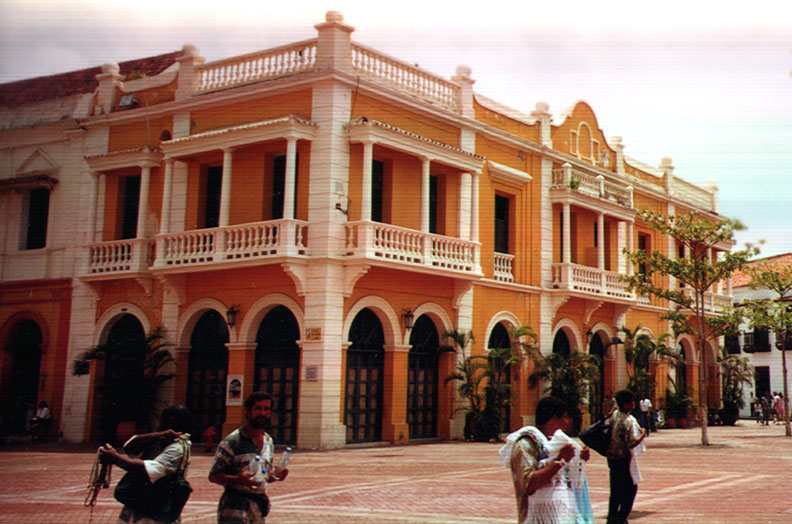
The scent of fresh flowers waifs across the courtyard to greet my senses. The sun sparkles on the windows and dances on the seas of the port town of Cartagena de Indias, Colombia.
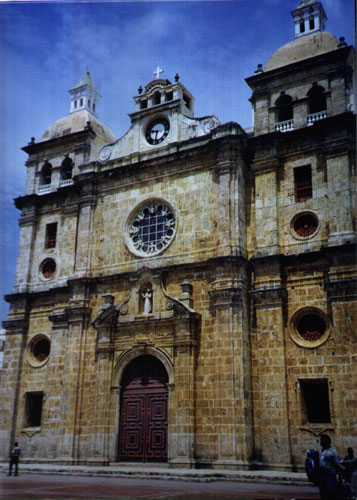
Founded by the Spanish in 1533, Cartagena has long beckoned to the international traveler, often being referred to as the gateway to South America. Today it still beckons to travelers, in spite of having a high kidnapping rate. Fortunately Cartagena is considered "safe", at least by Colombian standards.
Beautiful Cartagena has been called a living museum of architecture from the 16th and 17th centuries. Here you find many beautiful examples of Spanish architecture, such as the photo below, showing a magnificent stone building I visited in the downtown area, each unique and illustrating the various architectural forms visible here.
I continued my trek, being occasionally accosted by locals begging me to buy their wares: straw hats, painted gourd rattle/shakers, wood carvings. I resisted the urge to buy. I continued my search for a particular jewelry shop, where I had been told one could get very, very good deals on emeralds, if you purchased with American dollars. I was curious how good the prices actually were. Turns out that even with the "discounts" they were still more than my traveler's wallet could afford.
I walked on, and came upon the triangularly-shaped castle fortress atop the Hill of San Lázaro: Castillo San Felipe de Barajas. Begun in 1536, and expanded in 1657, construction concluded in 1767. It stands as an impressive example of Spanish military architecture.
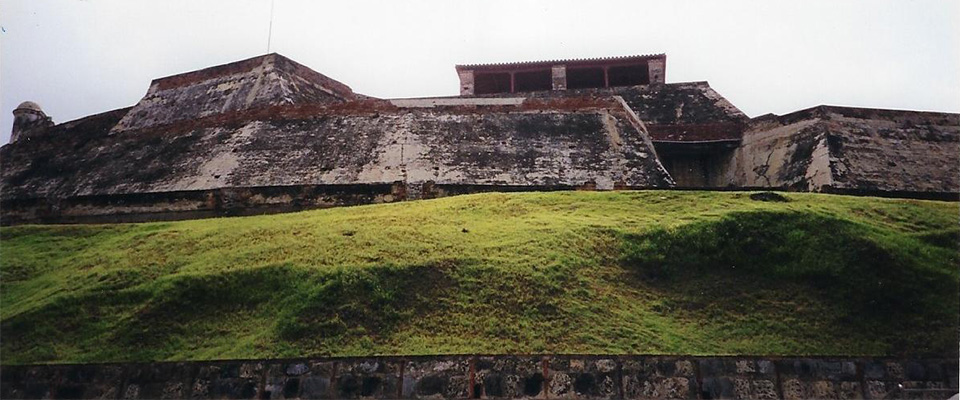
Later, I boarded a bus for the long ride up the mountain to visit the much acclaimed La Popa Monastery. It was well worth the trip! From the monastery walls you could see down upon the whole city of Cartagena, and the harbor beyond. The architecture of the monastery itself was impressive: two stories tall with a central courtyard, the second floor had an interior walkway that circled the courtyard below. Blossoming flowers were everywhere, inside and out: reds, pinks, yellows, fuchsias, magentas, scarlets. Everywhere, enchanting your eyes, engulfing your body.
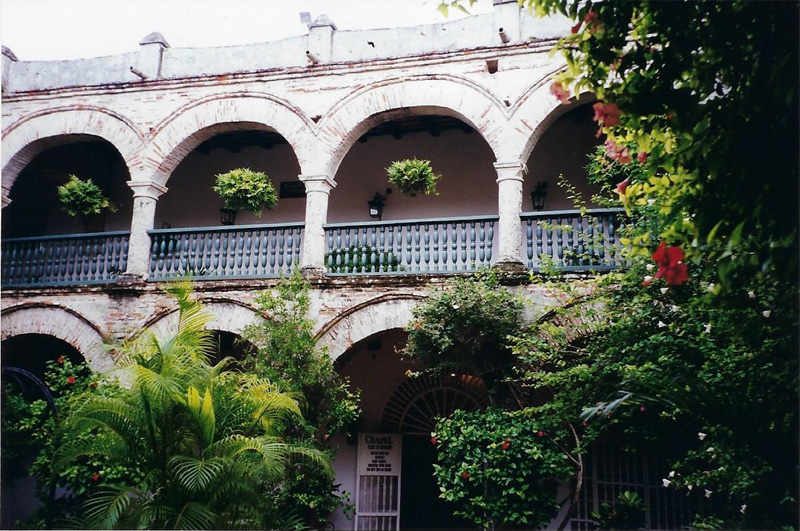
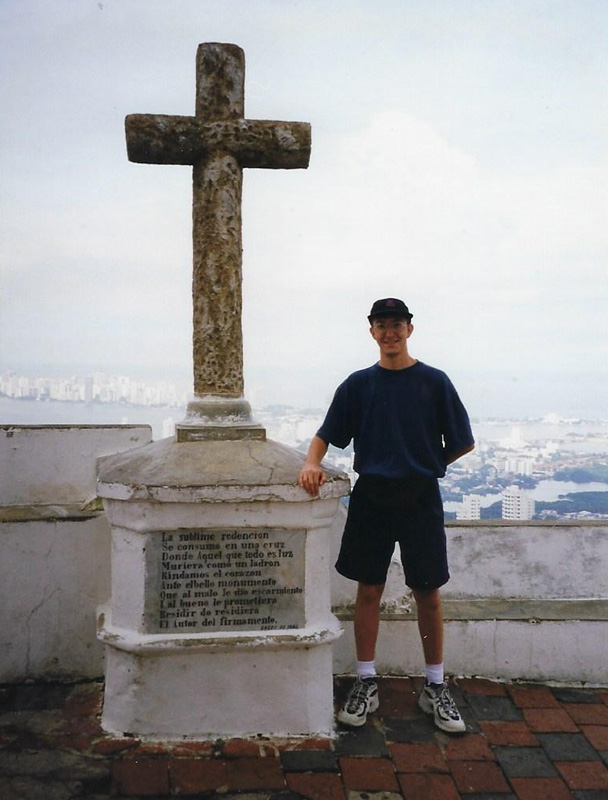
That night I departed the city, continuing my quest for knowledge, my journey from place to place, with a painted gourd rattle in each hand.
[Next Article]
